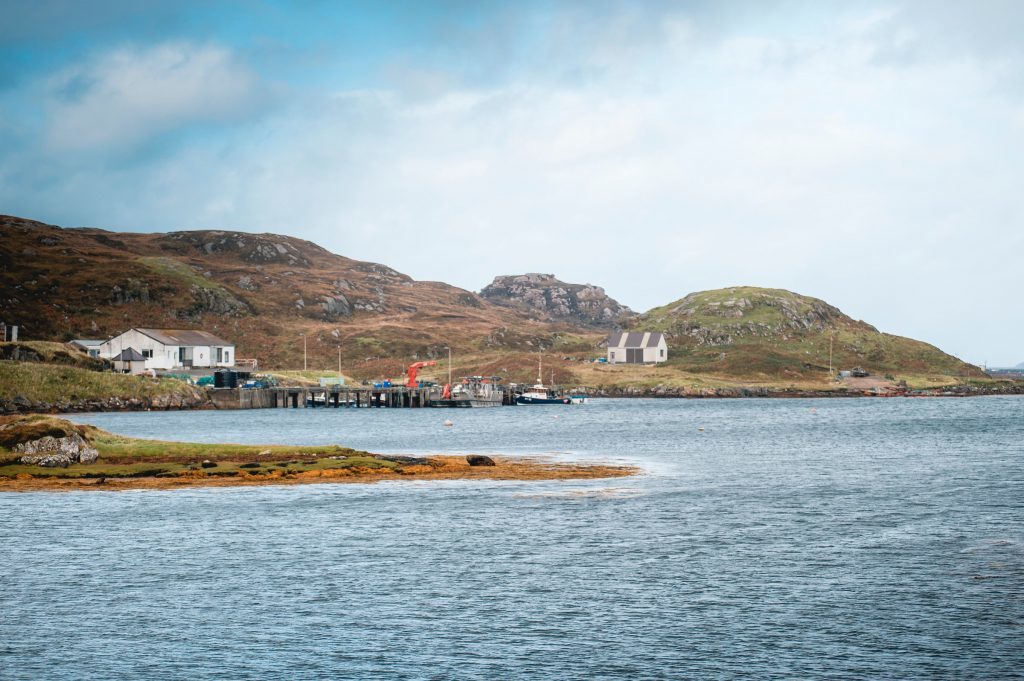
Lews Castle College UHI and housing organisation Tighean Innse Gall on Lewis have linked up with the University of Oulu in Finland to develop a unique, energy initiative which could make a real difference to the lives of people, facing high energy costs in areas which have a challenging climate.
The Outer Hebrides have some of the highest rates of fuel poverty in the country.
The project promotes the use of Combined Heat and Power (CHP) systems which utilise clean energy and reduce household energy costs.
“Our project aims to address fuel poverty in our islands and areas with a similar climate by using some of the heat used in people’s homes to generate electricity.” said Dr Alasdair Macleod, lead researcher in Energy Engineering at Lews Castle College UHI.
The purpose of the project is to promote the uptake of CHP in the region using solid renewable biomass and gasification methods that will be appropriate for remote households.
The Northern Periphery Area has abundant natural fuel resources but is subject to a harsher climate than the rest of Europe and this results in the need for increased domestic energy. Attempts to exploit natural energy resources for households has been mixed, and as a result, there is significant fuel poverty in the region. A key factor is the high cost of electricity.
It has been estimated that up to 70% of electrical energy can be lost in production and transmission lines before reaching the end user – primarily as heat loss. The principle of CHP is to use some of the heat in the home to generate electricity; this is intrinsically highly efficient.
“It’s potentially brilliant for residents of the Western Isles, in that as heat is produced electricity comes from the same source. This will improve efficiency, reduce electricity consumed from the grid and lower energy bills”, said Stewart Wilson, Director of Tighean Innse Gall.
The project will analyse the energy needs of remote households in the region. The available fuel is mainly solid which is unsuitable for existing gas CHP.
A new affordable solution is proposed that uses local renewable solid biofuel in a small-scale micro CHP system. The advantage of this approach is that all fuel used is carbon neutral, transport costs are minimal, and there are reduced CO2 emissions. This helps with carbon legislation compliance, reduced transmission losses from the grid, and the electricity-to-heat production ratio is a good match for the colder parts of Europe.
A 20 kW heat and 3-6 kW electricity with smart control system will be designed, manufactured and trialled in all participants’ areas. This system will demonstrate the energy efficient use of locally sourced, renewable bio-energy in family homes, especially in remote and sparsely populated regions. Up to now high capital costs have been a barrier to widespread adoption of household CHP and this project will examine the factors that can make such systems affordable.
“This project is a further example of how Lews Castle College UHI is committed to working with local and international partners to develop Energy Initiatives -which can make a real difference to people’s lives, through improving energy efficiency and reducing their fuel bills “ said Lews Castle College UHI Principal Iain Macmillan.
Donald Nicholson, Chairman of Tighean Innse Gall said, “It’s great that we can work together with Lews Castle College, on such an innovative project, to help tackle fuel poverty. Local, national and international collaboration is essential to developing such work”.
The three year project has received 1.99 Million Euros from the European Development Fund for the Northern Periphery and Arctic.
Tighean Innse Gall, Lews Castle College UHI and the University of Oulu are currently seeking further funding to increase the impact of the scheme.